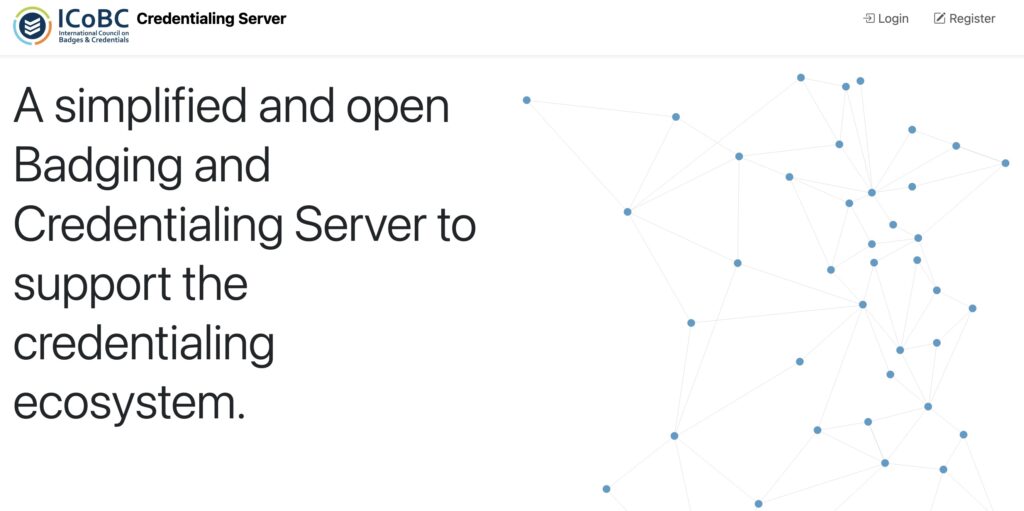Decentralized Identities, Self-Souvereign Identity, Verifiable Credentials, Open Badges, Micro-Credentials and Data Spaces for Skills are all related concepts that aim to empower individuals and organizations to manage their own digital identities and credentials in a secure, private and interoperable way:
- Decentralized identities, or DIDs, are a way of creating and managing digital identities that do not rely on a central authority or intermediary. DIDs are based on the concept of self-sovereign identity, which means that individuals or entities have full control and ownership over their own identity data and credentials. One of the main benefits of DIDs is that they enable verifiable and secure interactions between different parties, without the need for trusted third parties or intermediaries. DIDs are not always based on blockchain technology. Blockchain is one of the possible platforms that can support the creation and management of DIDs, but it is not the only one. There are other types of distributed ledger technologies (DLTs) that can also provide the necessary features for DIDs, such as immutability, transparency, and decentralization. Moreover, there are some non-DLT-based solutions that can also enable DIDs, such as peer-to-peer networks, distributed hash tables, or content-addressable networks. These solutions may have different trade-offs in terms of scalability, performance, security, and interoperability, but they all share the same goal of empowering users with self-sovereign identities.
- Self-Souvereign Identity (SSI) is a vision and a set of principles for how individuals can own and manage their own digital identities without relying on intermediaries or centralized authorities. SSI is enabled by DIDs and Verifiable Credentials .
- Verifiable Credentials (VCs) are another open standard developed by the W3C that allows individuals and organizations to issue, store and present digital credentials that can be verified cryptographically. VCs can be used to prove various aspects of one’s identity, such as education, skills, achievements, memberships, etc. VCs are based on DIDs and can be exchanged using peer-to-peer channels .
- Open Badges are a specific type of digital credential that can be used to recognize learning and achievements across various contexts. They are based on an open technical standard maintained by IMS Global Learning Consortium / now 1edtech and can be displayed on various platforms. Open Badges can be compatible with VCs if they follow certain requirements.
- Micro-Credentials are another type of digital credential that can be used to certify specific skills or competencies that are not covered by traditional qualifications. They are usually shorter, more flexible and more granular than formal credentials. Micro-Credentials can also be compatible with VCs if they follow certain requirements.
- Data Spaces for Skills are a concept proposed by the European Commission to create a common European framework for sharing data on skills and qualifications among different stakeholders, such as learners, educators, employers, etc. Data Spaces for Skills aim to facilitate the recognition and validation of skills across borders and sectors. Data Spaces for Skills could leverage VCs, Open Badges and Micro-Credentials as sources of verifiable data on skills.
Digital Identity
Digital Identities crucial for the portability of badges and credentials. Legal matters, security and privacy are relevant topics when it comes to digital identities. ICoBC endorses the self-souvereign identity movement such as eIDAS in Europe and the Decentralized Identifiers (DIDs) of the W3C.
Inform yourself about the current standards on Digital Identity and Verifiable Credentials via one of the recent episodes of Identi3 (we can recommended to follow Dock.io in general).
Data Spaces for Skills
We are working with various organizations such as governments, research organizations and SMB on the creation and alignment of Data Spaces for Skills.
Learn more about Data Spaces for Skills from the DS4Skills project, which we are supporting in their Advisory Board.
Taxonomies
ICoBC and its groups are looking at taxonomies from both the AI as well as from a human perspective. We focus on translation of taxonomies e.g., from official standards to organisational taxonomies and visa-versa. We also support organisations in matching skills to occupations in order to foster internal and cross-organisational mobility within the same ecosystem, e.g. the UN System (Mutual Recognition of Competencies – Pro Learn Network (pro-learn.net)).
OpenBadges3 / VC Server
ICoBC and relevantive GmbH have developed a free OpenBadges3 and Verifiable Credentials Server titled “Badgau” that works as a playground for our community. It can issue credentials for a variety of use cases including attendance badges, course completion, language certificates or even memberships. It allows for controlled sharing in social networks with selective disclosure and import into several existing or future wallets (e.g. Learner Credential Wallet).

Verifiable Credentials
We bring stakeholders together from issuers and verifiers in order to build a user experience for the holder that puts the value of credentials in practical use cases upfront. Our particular interest is in aligning international scenarios and cross-sectoral ecosystems. We also notice that there is an increasing array of free or low-priced solutions out there.